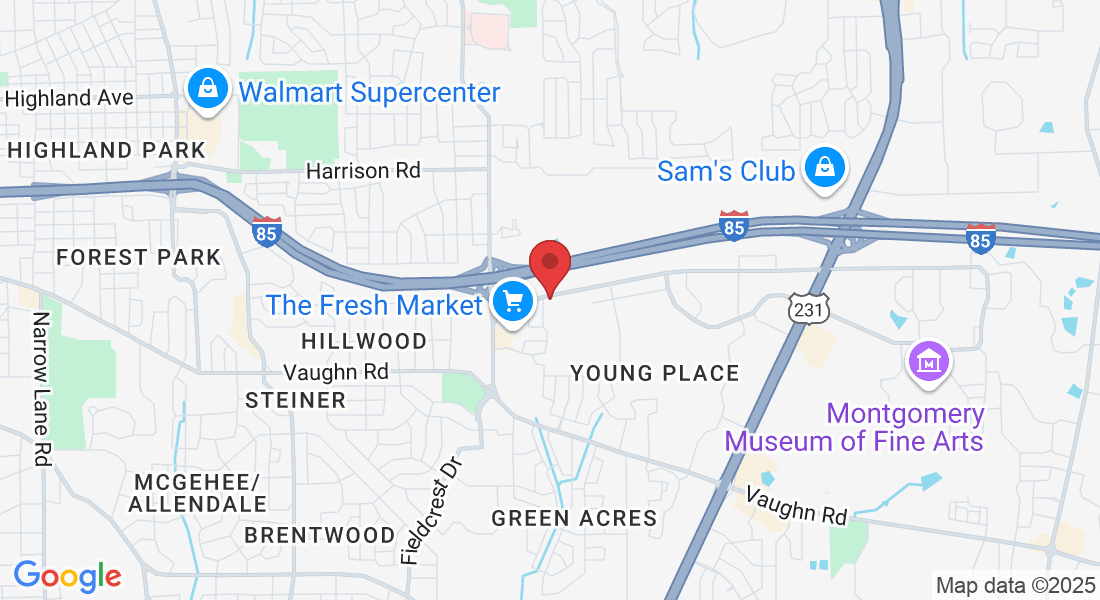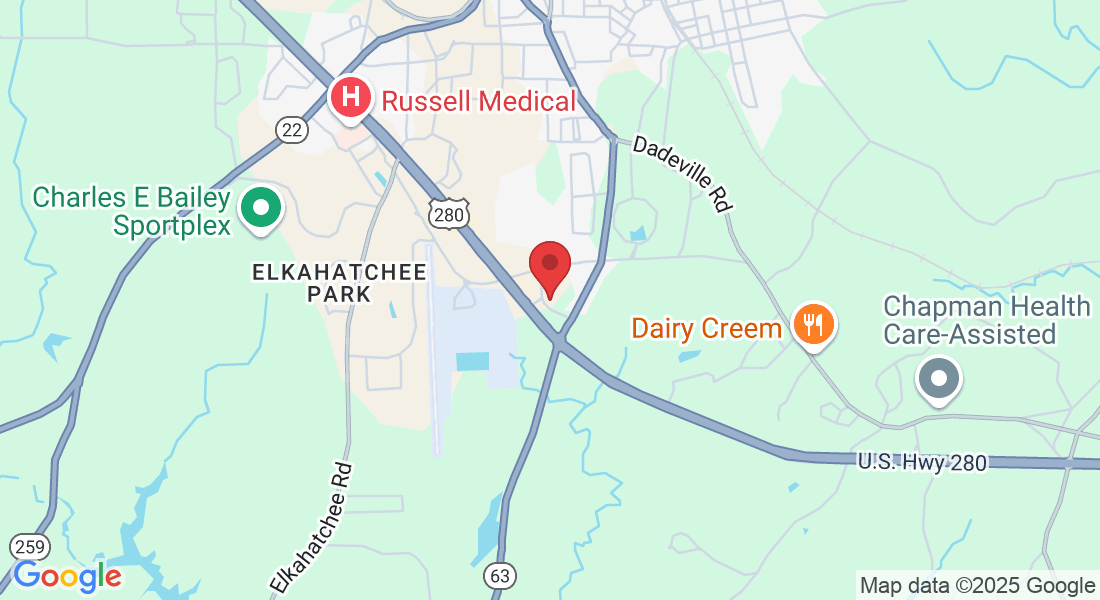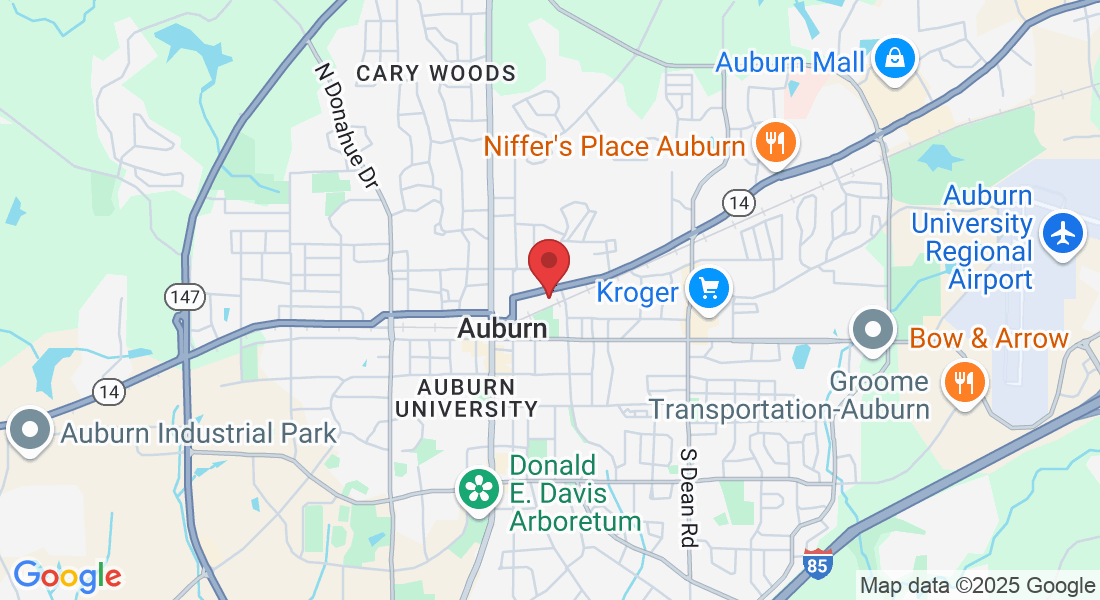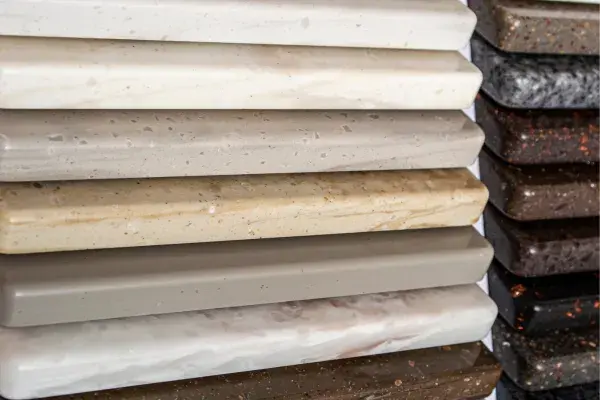
Granite Vs Corian Countertops: Which is Best for You?
Choosing between granite and Corian countertops is a personal decision that largely depends on your lifestyle and design preferences. For the discerning person who desires an elegant, high-end look and doesn't mind a bit of maintenance, granite countertops may be the perfect choice.
Alternatively, Corian countertops, known for their durability and easy care, can be an ideal choice for those who prioritize convenience and a contemporary aesthetic. This guide will delve into the specifics of each material to help you make an informed decision that best suits your home and your style.
What are Corian Countertops Made Of?
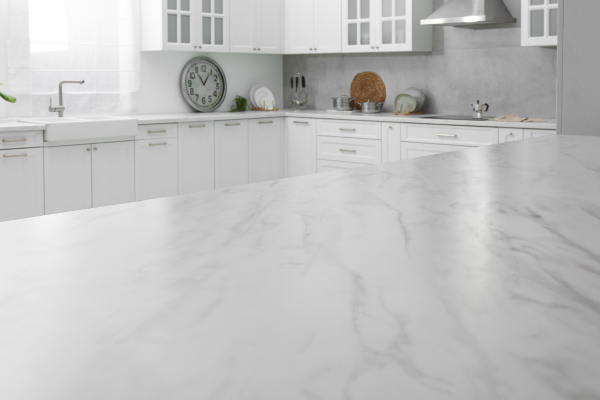
Corian countertops are a types of solid surface countertops made by the company DuPont. They are constructed from an acrylic polymer and natural solid surface minerals, primarily alumina trihydrate derived from bauxite, the ore from which aluminum is extracted. The unique blend of these materials results in a nonporous surface, making it resistant to stains, and allows for seamless integration of Corian surfaces sinks and backsplashes.
How is a Corian Kitchen Countertop Made?
The production process of Corian solid surface countertops involves mixing the acrylic resin with the bauxite derivatives to form a material known as 'Corian'. This material is then put through high heat and poured into molds in order to create sheets or slabs. Once cooled, these slabs are cut and polished into the final shape of the countertop. One of the key advantages of this process is that Corian countertops can be made in virtually any shape or size, and are available in a wide range of colors and patterns, making it possible to achieve a truly custom look in your kitchen.
Advantages of Corian Countertops Over Granite
Corian countertops boast several notable advantages over their granite counterparts. One of the foremost advantages is their non-porous nature, which makes them inherently resistant to stains - a feature that granite countertops lack. This makes for easier maintenance and a longer-lasting fresh look with proper care.
Another noteworthy advantage of Corian countertops is their design flexibility. Unlike granite, man-made materials like Corian can be formed into virtually any shape or size and is available in a wide range of colors and patterns. This allows homeowners to personalize their kitchens to their exact tastes and style preferences.
Additionally, Corian countertops offer seamless construction, which means there are no visible joints or seams. This seamless nature not only enhances visual appeal but also eliminates crevices where bacteria and mold can hide – an important consideration for kitchen hygiene.
Lastly, Corian countertops, although offering a premium appearance, can be more cost-effective than granite. They deliver a high-end aesthetic without the high-end price tag, making them a great choice for homeowners seeking a balance of style, functionality, and budget.
To sum it up, the advantages of Corian countertops are that they are:
-
Stain resistant because they are non-porous, great for food preparation
-
Design flexibility, comes in a wide range of color options, shapes and patterns for different kitchen design possibilities
-
Seamless look, no joints or seams
-
More cost affective than granite
-
Only requires soapy water to clean
Disadvantages of Corian vs Granite
Despite the many advantages of Corian countertops, they do come with their own set of drawbacks when compared to granite. One of the key disadvantages is their susceptibility to heat. Unlike a granite slab, Corian countertops cannot withstand high temperatures and can warp or melt when hot pots or pans are placed directly on them.
Another disadvantage is that despite their seamless appearance, Corian countertops are prone to scratches and cuts. While minor damage can be repaired, more severe scratches or cuts can require complete replacement.
Furthermore, while Corian does offer a wide range of colors and styles, it does not possess the natural beauty and unique patterns found in granite. It has more of an artificial look. However in recent years, they do look a little more realistic.
However, the allure of natural granite countertops gives them a one-of-a-kind look that Corian countertops cannot replicate.
Lastly, though Corian is more cost-effective initially, it might not be in the long run. Granite is more durable and better for long-term use. Its timeless appeal can increase resale value, making it a potentially more cost-effective choice in the long run.
In summary, the disadvantages of Corian countertops are:
-
Susceptibility to heat
-
Prone to scratches and cuts
-
Lack the natural beauty of granite
-
Questionable long-term value
How Granite Countertops are Made
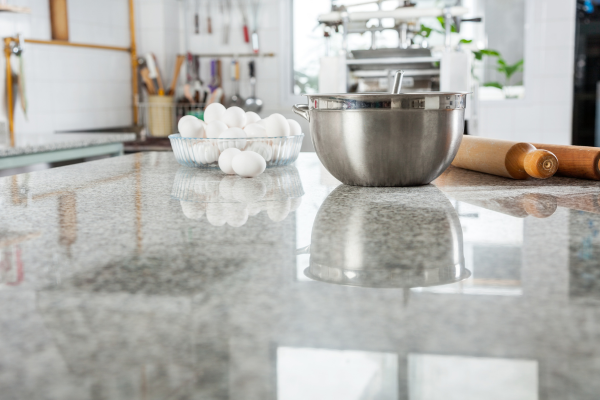
Granite countertops begin their life deep within the earth, as granite is a naturally occurring rock that forms under the crust due to the cooling and solidification of magma or lava. The process takes millions of years, creating a product that is rich in natural beauty and strength.
Once the granite is quarried from the earth's natural rock, it is then transported to a processing facility. Here, the large blocks of granite are cut into slabs using a combination of high-speed water jets and diamond-tipped wires. This cutting process reveals the unique patterns and colors of the granite, which are determined by the minerals that were present during its formation.
After being cut, the slabs are polished to a glossy finish, enhancing the natural colors and patterns that make each piece of granite unique. The final stage involves the slab being cut to the specific size and shape of the countertop, including the addition of any desired edging and finishes.
Once these steps are complete, the granite top is ready to be installed in the kitchen. It's a fascinating journey from a rough stone in the earth to a beautiful and functional piece of your kitchen.
In summary, the process of making granite countertops involves:
-
Quarrying the granite from the earth
-
Cutting the granite into slabs and revealing their unique patterns and colors
-
Polishing the slabs to enhance their natural beauty
-
Cutting the slab to the specific size and shape for installation.
Advantages of Granite Kitchen Countertops
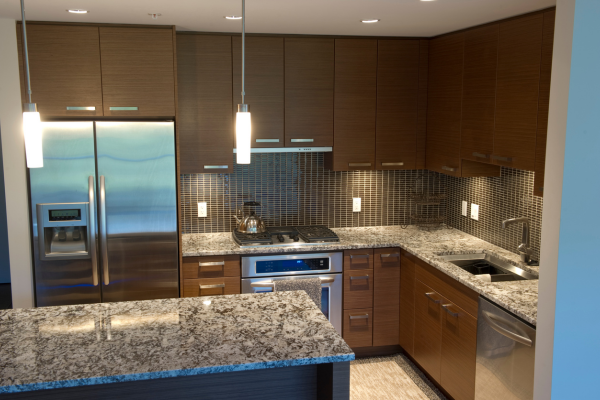
Granite kitchen countertops are a popular choice for many homeowners due to their durability and natural beauty. Each slab of granite is unique, ensuring an exclusive pattern and color scheme for every counter.
This natural stone has a certain elegance that enhances the aesthetic appeal of the kitchen, making it a favored selection for those who appreciate the allure of nature in their living space.
In terms of durability, granite countertops are highly resistant to heat and scratches, making them a reliable surface for cooking and other kitchen work. They can withstand high temperatures without damage, allowing even a hot pan to be directly placed on them.
Granite surfaces have a porous nature, which means they can absorb liquids and may be prone to staining if not properly sealed. Regular sealing helps maintain their fresh look and prolongs their life, making them a practical choice for busy kitchens.
In terms of cost, granite countertops can be more expensive than some other options, such as Corian. However, many homeowners see this as a worthwhile investment, considering the longevity and unique visual appeal granite offers.
In summary, the key features of granite countertops are:
-
Natural beauty with unique patterns and different colors
-
High durability, heat and scratch resistant
-
Requires regular sealing due to its porous nature
-
More expensive but considered a worthy investment due to longevity and aesthetic appeal.
Disadvantages of Granite Countertops
While granite countertops offer a unique and elegant aesthetic, they do have certain drawbacks when compared to Corian countertops. One of the main disadvantages is their cost. Granite is typically priced more by square foot than Corian, which could be a significant factor for homeowners on a tighter budget.
Additionally, as previously mentioned, granite requires regular sealing to maintain its resistance to stains and damage, which not only adds to the long-term upkeep cost but also the amount of effort needed for maintenance.
Furthermore, the porous nature of granite can harbor bacteria, potentially leading to sanitary issues if not cleaned thoroughly. Lastly, granite is heavy and requires substantial support, which means it may not be suitable for all types of cabinetry or kitchen layouts. In contrast, Corian is lighter and more versatile in terms of installation requirements.
Differences in Caring for Each
Just as these materials differ in appearance and durability, the care needed for granite and Corian countertops also varies.
Granite, due to its porous nature, requires regular sealing to prevent staining and maintain its fresh appearance. This process typically involves a specialty product and might need to be done annually or biannually depending on the usage and type of granite. In terms of everyday maintenance, granite countertops should be cleaned with a mild dish soap and water or a cleaner specifically designed for natural stone.
On the other hand, Corian countertops are non-porous and don't require sealing. This means they resist stains and are easier to clean - most messes can be wiped up with a damp cloth and mild household cleaner.
Because Corian is softer than granite, it's more susceptible to scratches. However, minor scratches can be removed using a mild abrasive cleaner, or for deeper scratches, a light sanding may be required.
In essence, granite countertops demand a bit more maintenance due to the need for regular sealing and use of specific cleaners, while Corian countertops offer simpler upkeep but may require occasional scratch repair.
In summary:
-
Granite countertops require regular sealing to prevent staining due to its porous nature and specific cleaners for day-to-day maintenance.
-
The sealing process for granite countertops might need to be done annually or biannually, depending on usage and the type of granite.
-
Corian countertops are non-porous, therefore, they resist stains and are easier to clean, usually requiring just a damp cloth and a mild household cleaner.
-
Although Corian is softer than granite and more susceptible to scratches, minor scratches can be removed using a mild abrasive cleaner or light sanding for deeper scratches.
-
Overall, granite countertops require more maintenance, while Corian countertops demand simpler upkeep but may need periodic scratch repair.
How to Determine the Best Choice for You?
When deciding between granite and Corian countertops, it's crucial to consider your lifestyle, budget, and aesthetic personal preference.
Lifestyle: Evaluate your daily kitchen activities. If your kitchen sees heavy usage and you don't mind the extra maintenance, granite could be a good fit. Conversely, if you prefer low maintenance and won't mind potential scratches, Corian could be the better option.
-
Budget: Granite tends to be more expensive than Corian. Determine your budget for this project and choose accordingly. Remember, however, that the durability and longevity of the countertop could affect long-term costs.
-
Aesthetics: Both granite and Corian offer a range of colors and patterns. Granite provides a natural, unique look with its rich, organic patterning, while Corian offers a more consistent, smooth appearance.
In conclusion, the choice between granite and Corian countertops depends largely on your own usage patterns, financial considerations, and design sensibilities. It may be beneficial to visit a showroom or renovation center to physically see and feel the materials before making a choice.
After weighing all these factors, you should be able to make an informed decision about which countertop is best for you. If you're interested in getting Alabama Construction Pros to do a complete kitchen remodel feel free to get in touch with us.



